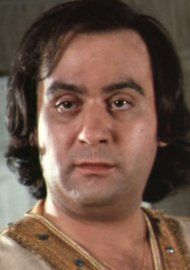I drifted to The Moon last night looking for my life. Mister Barman if you please, a bottle of your best red my ghosts will soon be here.
Michael's story Our witty gentle friend; Michael on most nights and Stephanie the rest. Many hurled abuse at you
many more broke your bones. Terrified, you ran to the Moon
for shelter.
We nursed you back to health we mended your bruised body but there was no cure for all the scars they left inside. Our dearest kind friend, none of
us could see the rope in your eyes. May you now rest in peace
my dearest friend, you
were born an age too soon.
Victoria's story
I drifted to The Moon
searching for a summer dress.
With a Gauloises between
your lips and a Bacardi in your hand, you were
the coolest girl I had ever seen.
Victoria, the girl with a hundred
lovers but still a virgin in her heart.
In a moment of sheer madness,
we promised to be faithful. And we were; well almost,
except for a few nights.
But it was the sixties then
and wantonness was no sin.
Soon we stumbled into love. We became tongue-tied and we blushed like children. On Primrose Hill
under a lilac sky, we weaved
our vows on the summer moon.
I gathered violets and bluebells and pinned them in your hair. I was speechless. No one ever
looked more beautiful than you.
My sweet Victoria burning; incandescent; this was the fever of first love.
I drifted to The Moon last night looking for my life.
A few words about the poem…
The Echoes of the '60s | A Poetic Journey in "The Half Moon" | A Coming-of-Age Poem
In the embrace of the 1960s, a decade that unfurled like a kaleidoscope of change, a coming-of-age poem titled 'The Half Moon' emerges as a captivating vignette of youth, love, and loss. With an evocative voice, the poem leads us through the bustling streets of North London, particularly Finchley Road, a hub of cosmopolitan vigour where many youngsters took their first steps toward adulthood.
'The Half Moon,' as an emblematic club, beckons us into a world filled with the echoes of the era. It encapsulates the fervour of the '60s, a time when rebellion was in the air, and societal norms were being questioned. The club's vibrant atmosphere reflects the youth's desire to break free from conventions and embrace a more liberal way of life, mirroring the spirit of the decade.
Amidst this vivacious backdrop, the poem weaves the tales of Michael and Victoria, two souls touched by the fervent spirit of the '60s. In the story of Michael, we glimpse the harsh realities faced by many during those transformative years. The poem paints Michael as a gentle and witty friend, subtly addressing the untimely end of his journey. It is a poignant narrative that captures the heartache of an entire generation.
Victoria's story, in contrast, is a snapshot of youthful love and the wantonness of the '60s. The poem’s style allows us to witness this blossoming love without being carried away by superlatives. Victoria, with her allure and free-spirited charm, embodies the zeitgeist of the era when boundaries were pushed, and love was often found and lost in the same breath.
The “Moon” represents an era of change and exploration symbolizing the incomplete journey of youth into adulthood, just as the '60s represented a halfway point between tradition and the unknown.
The poem stays true to the spirit of the '60s by not using rose-tinted glasses to recall memories. It delivers an objective overview of its themes while inviting readers to dive into the depths of a bygone era. With its subtle yet evocative language, the poem resonates as a testament to the transformative spirit of the decade and allows the reader to glimpse the evanescent beauty and turbulence of youth in those years.






Comentarios